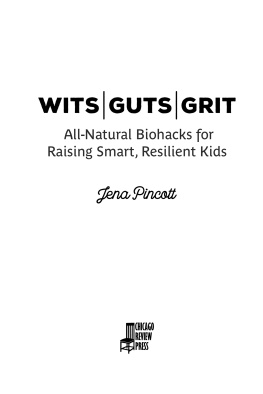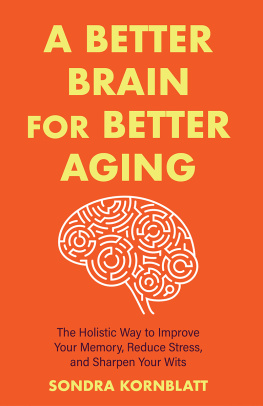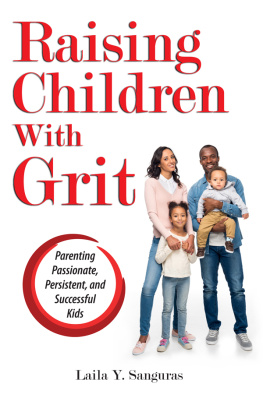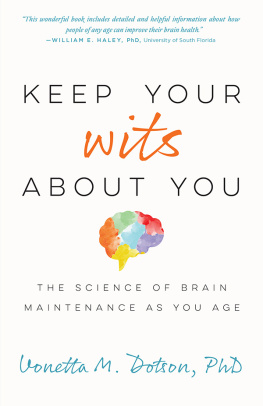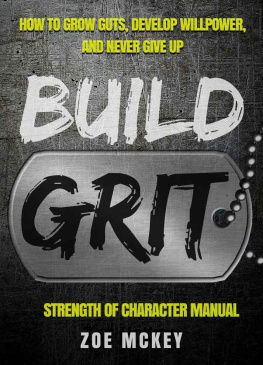Names: Pincott, J. (Jena), author.
Title: Wits guts grit : all-natural biohacks for raising smart, resilient
kids / Jena Pincott.
Description: First edition. | Chicago, Illinois : Chicago Review Press,
[2018] | Includes bibliographical references and index.
Identifiers: LCCN 2017040060 (print) | LCCN 2017045617 (ebook) | ISBN
9781613736890 (adobe pdf) | ISBN 9781613736913 (epub) | ISBN 9781613736906 ( kindle) | ISBN 9781613736883 (trade paper)
Subjects: LCSH: Child rearing. | Resilience (Personality trait) in children.
| Gifted children. | BISAC: FAMILY & RELATIONSHIPS / Parenting / General. | MEDICAL / Immunology.
Classification: LCC HQ769 (ebook) | LCC HQ769 .P6625 2018 (print) |
DDC 649/.1dc23
LC record available at https://lccn.loc.gov/2017040060
Introduction
W HEN IT COMES to raising smart and resilient kids, theres nature and theres nurture. This book looks at natural biohacks that help kids adapt to a challenging and continuously changing world, so it involves a little bit of nature (genes and instinct) and a lot of nurture (environment, upbringing, and interventions). How much sway nurture has over nature is a mystery that even my six-year-old, UJ, touched on the other night when she asked, Mama, if we went back to the wild, would we become like our ancient ancestors again? She basically wanted to know if wed be better people if we left our trappings and lived and ate like our forebears in a more natural setting. I should mention that this was coming from a city kid who has never spent a night outdoors or even seen a real campfire. Here, in New York City, the wild animals are rats.
Hmmm, I said with suspicion, looking at the clock on her nightstand: 8:24. A deep question like this struck me as a ploy to stay up late on a school night. Depends on what you mean by natural. Its hard to tell with humans.
This was a deeply unsatisfactory response, especially because I punctuated it with darkness, turning off her light and promising her a better answer at a better time. But after I kissed her good night, the question lingered.
Before becoming a parent, I never gave much thought to the nature-nurture dynamicthe interplay of innate qualities versus learned or acquired ones. I was more focused on futurism, the next big thing. Then UJ arrived, followed four and a half years later by her sister, Ami. There were primal smells in the air: blood, milk, feces, sweat, tears. It occurred to me that for these two young mammals to survive and thrive in the world, theyd need wits, guts, and a lot of grit. What is it, I wondered, that shapes kids temperament, personality, brainpower, emotional resilience, self-regulation, memory, powers of focus, mental flexibility, and the plasticity of their neurons? I had a suspicion that outside forces Im not aware of, and over which I have no control, could have as much impact on these virtues as any playgroup, extracurricular, or reading list Id foist upon them. Ive never so much wanted to have control, and Id never been so desperate to cede it to a higher power.
Ultimately, it all comes down to the interaction of biology and environment. I first started to think about invisible forces (the nature or biology side of the equation) when UJ was a colicky, sensitive infant. Many people told me that what you see is what you get; that temperament is basically set by age two. Around this same time, microbiome research busted outfirst in geeky science circles, then later in the mainstream. The field, which focuses on the impact of gut bacteria on human health and development, has grown even faster than my kids. Now we know that some microbes within the gut release signaling molecules, such as neurotransmitters serotonin and dopamine, that modulate our moods and behavior. Theres increasing evidence that specific types of bacteria contribute to the ability to bounce back after a setback. Recently, a study on the brain-gut link found a striking correlation between toddler temperament and gut bacteria, with a diversity of microbes associated with extraversion and certain strains with introversion.
Could the right gut bacteria dial up my own kids resilience and grittiness or somehow optimize their temperament and even their brain development? I wondered. If so, how do we get some (the nurture side of the equation)?
This is where biohacking comes in. I use the loose definition of biohack: to use self-experimentation to explore and tinker with body, mind, and biology to help reach your full potential (or, in this case, your kids potential). (If you saw the word biohack in the title and thought this was an illicit guide for programming your child to be a Teflon genius, Im sorry to disappoint.) Experimentation here is low-tech and cheap, mostly using natural resources that we all have or that are acquired easily. The aim is to explore subtle but effective ways to support joy, learning, creativity, and, most of all, resilience in our children.
Because the pressures on! My grade-schooler, like many kids, hardly stepped out of the sandbox and is already knee-deep in expectations: music performances, school plays, word problems, and critical thinking. In her future, there will be grades and standardized tests, then high school and college placement. There will be performance pressure, both social and academic. There will be perils and pitfalls, some of which are experienced by every generation and, I worry, some unique to hers. My kid knows that the adults in her life expect (OK, hope) that shell pull herself up by her bootstraps and rebound.
We all want to see grita term popularized by the psychologist Angela Duckworth that describes the ability to keep pursuing something even after setbacks and sometimes against all odds. Gritty kids know and accept that mistakes and failings are part of learning, and they get comfortable with the feeling of struggle. They bounce back. Resilience leads to better health, happiness, and success in life. The good news is that children are not born with a set amount of resilience. Its a muscle that we can help them strengthen. What a gift it would be to learn gritty resilience-building behaviors while still young, so that they become habit.
Were accustomed to thinking of grit as a mindset. But as parents and educators, we often overlook the factors that underlie grit or are ingredients of grit or grit-related virtues like focus, trust, cognitive flexibility, working memory, stamina, and ability to self-regulate and cope with anxiety. To this list I include several items that, in turn, underlie these qualities: missing microbes and micronutrients; bodily awareness, physical contact, and physicality; light, air, a stronger connection with our environment (including ways to overcome challenges of living in adverse settings like cities); and even oddball stuff like the biological signals in sweat and tears. What if we tap into those forces?
This book was conceived by what-if questions, and those questions inspired explorations and experiments. Starting with microbes, I wondered what if

